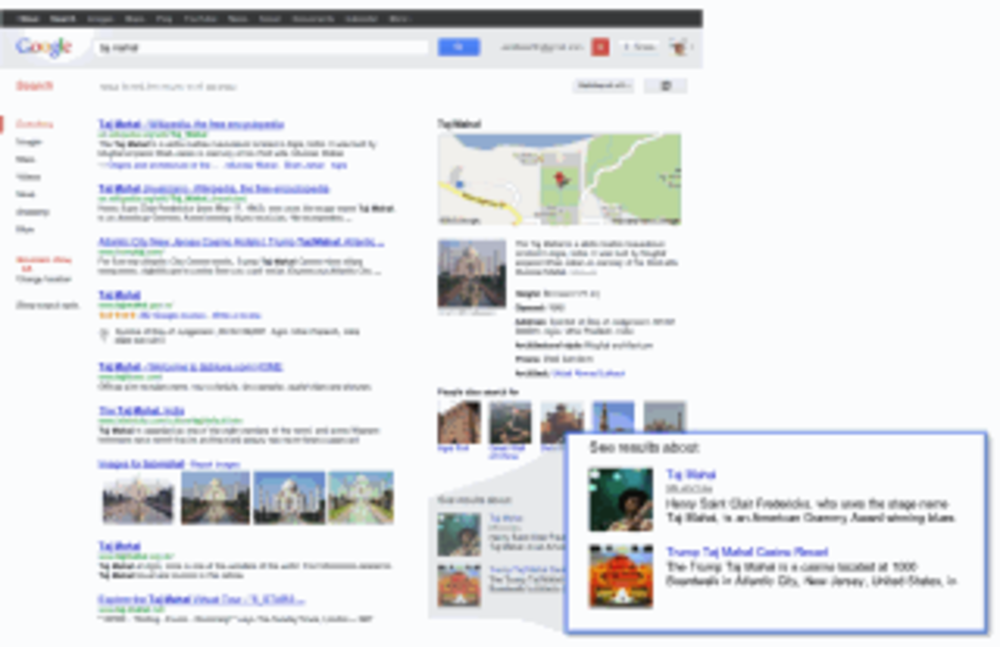Google
launched on May 16 its Knowledge Graph, which allows users to search for
things, people and places that “Google knows about” and “instantly get
information that is relevant to your query,” according to a blog post by Amit Singhal, SVP
of engineering at Google.
The
project began in 2010 when Google acquired Metaweb Technologies, a Google
spokesperson said, which was working on the Freebase
Project,
described as “an entity graph of people places and things, created by a
community that loves open data” on the website.
Knowledge
Graph, according to Singhal’s blog entry, enhances Google Search in three ways:
it makes searches more relevant, gives users better summaries of searches and
helps users discover new things based on what others are searching.
The Knowledge Graph
shows up on the right hand side, but only for particular items that are in the
Knowledge Graph, which have been collectively pulled together from Google
Search users. The Knowledge Graph has begun to gradually roll out to US English
users. When it pops up is similar to how Google Maps pops up sometimes if
your search is related to a particular address.
The
Google spokesperson said the Knowledge Graph does not have any particular
effect on search marketing and display ads will still be shown when they are
relevant.
On first glance, it
seems as if advertisers may be missing out on the opportunity to show relevant
ads to consumers based on searches. The amount of space Knowledge Graph takes
up on the right side of a page—at least based on the blog post’s images—looks
like prime advertising space. However, perhaps—as MediaWhiz’s general manager of
search Adam Riff points out, this is a great way for advertisers to only
display ads to relevant consumers and really zero in on exactly the type of
people they’re trying to target. Ultimately, brands won’t have to pay
for ads that aren’t.
Even though Google indicated Knowledge Graph would affect search
marketing, the company spokesperson gave an example that underscores Riff’s
point. For instance, if you search for the word “king,” you might get the
sports team (either basketball or hockey), a television show, or a historical
figure. But Burger King ads won’t appear. Better targeting will create better
value for display ads.
JoAnn DeLuna is the digital reporter at Direct Marketing News.








